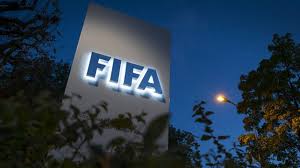By Andrew Warshaw
March 21 – Gianni Infantino, used to getting his own way since taking over as FIFA president, has failed in his bid to introduce a new global league for women amid concerns that not enough consultation took place with the various stakeholders before the idea was officially tabled.
Last week’s FIFA Council meeting in Colombia was dominated by the approval of video assistant referees for the World Cup with Infantino, who has campaigned personally for the system’s introduction, hailing the ground-breaking initiative as a historic move for world football.
Among the Council’s other business was a proposal, buried in the agenda and endorsed by Infantino, to approve a 16-team global women’s league. But it is understood it was killed by European members who argued that the idea was presented as a fait accompli and that not enough detail had been provided beforehand.
A FIFA press release following the meeting explained that the matter “required further examination” yet UEFA are believed to have made it known as far back as November that their women’s calendar was full and that the new concept would punish clubs and was not in their best interests.
Former FIFA director of women’s football, Tatjana Haenni, told Insideworldfootball that events in Bogota proved that while FIFA should be praised for trying to promote the women’s game, their strategy needed considerable re-examination.
“It’s great that FIFA wants to do something new but the proposed concept is not what is helpful for women’s football worldwide,” said Haenni, who spent 18 years running women’s football at FIFA until being purged by Infantino’s regime.
“It shows that there is a lack of consultancy. Discussions about this started even when I was there. I said at the time it’s not what I recommend to do. It’s a really good sign that the decision was postponed. In Europe the calendar is full. To add a new national team competition without any in-depth consultation or feasibility study is a risk.
“I can understand that the FIFA concept was supported by some confederations and national associations because they thought FIFA would run the competition on their behalf but it’s hard to understand how they could approve a new competition without really listening to clubs and leagues, mainly in Europe, where there are huge challenges for the clubs and leagues in relation to players release and national team duties.”
Haenni, who along with the likes of Moya Dodd was one of the most visible and knowledgeable experts at FIFA until being ousted, said there were far better ways women’s football could be promoted globally.
“One solution could be that the confederations individually do what they should have been doing for years and organise tournaments for their women’s national teams,” she said. “In some countries like Argentina and Chile they didn’t play a single match for two years. The other solution is for FIFA to run a Club World Cup for women. For the next step and commercial success of women’s football, the clubs and the leagues must be strengthened and not weakened.”
Haenni, never afraid to challenge the male-dominated heirarchy at FIFA and who now works as an international sports consultant, hinted that there was still too much of an autocratic environment around FIFA and that some of the women in positions of influence in the various confederations lacked the proper credentials for the job.
“If you take women’s football seriously, it comes down to two or three things. What is the structure and who are the people running it? Are they competent enough with sufficient knowhow? And what kind of resources do they get?”
“It’s significant that there is no longer a women’s football committee (at FIFA). It’s not good (enough) just adding a couple of women left and right. Yes, there is more money for women’s football than there used to be but it’s a drop in the ocean. They hail it as something positive but it’s still insufficient. Women’s football needs investment to grow and to become commercially successful.”
“An event where one can see how FIFA treats women’s football will be the next Women’s World Cup 2019 in France. Will teams still have to travel in economy class? What is the prize money? I hope that there will be major improvements from the last World Cup to this one.”
Contact the writer of this story at moc.l1714707939labto1714707939ofdlr1714707939owedi1714707939sni@w1714707939ahsra1714707939w.wer1714707939dna1714707939

